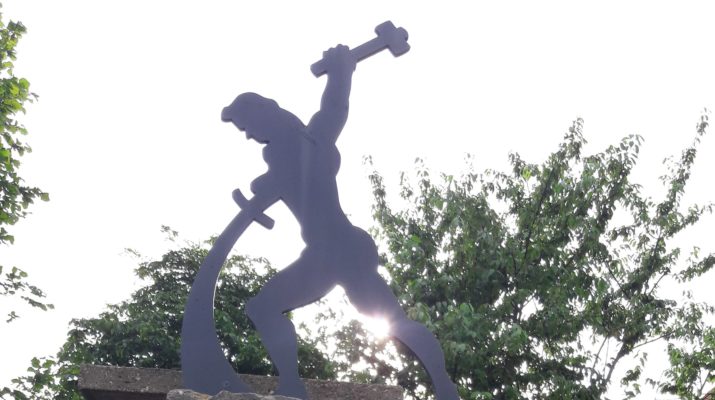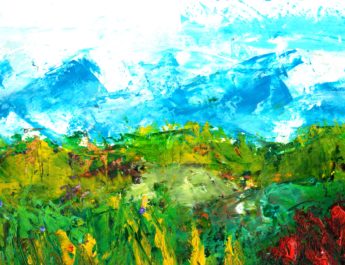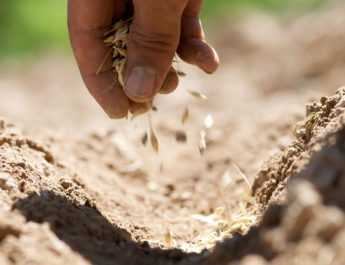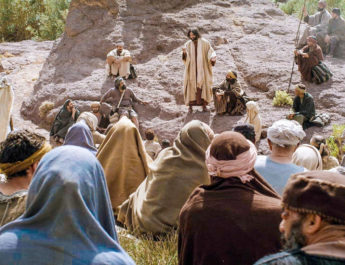Isaiah 2:1-5
A Women’s Lectionary 14
1The worda that Isaiahb son of Amozc sawd concerning Judahe and Jerusalem.f
a “word” = dabar. From dabar meaning “to speak”. This is speech, thing, matter (as something that is spoken of).
b “Isaiah” = yshayah. From yasha + Yah. Yasha, meaning to deliver, defend, help, preserve. Properly, it means to be open, wide, or free and thus, causatively, to save (as bringing someone to a wide open space. Yah is a shortening of YHVH, the tetragrammaton, the proper name of the God of Israel. Its root means “to be or become.” So, God as the self-existent or eternal one.
c “Amoz” = amots. From root amets meaning to be stout, strong, courageous, determined, take courage – to be alert, to establish, fortify, prevail. So, Isaiah is the son of strength and courage.
d “saw” = chazah. This is “to gaze at”, see, behold. Specially used for having visions and prophesying.
e “Judah” = yehudah. Probably from yadah – to throw, cast, praise, give thanks. Literally, this is using or holding out a hand. Since one holds out hands in praise, this name probably means praised or celebrated. Judah, a son of Jacob, his tribe, their descendants, and the Southern kingdom of Israel.
f “Jerusalem” = yerushalayim. From yarah + shalem. Yarah is to throw, shoot, to flow like water or rain. Figuratively, it is pointing something out like one points a finger and so to teach. Shalem is to be complete or sound, make good, be at peace. It is where shalom comes from. So, Jerusalem probably means founded peaceful or foundation of peace.
2In days to comeA
the mountain of the Lord’s house
shall be establishedB as the highestC of the mountains,
and shall be raised above the hills;
all the nationsD shall streamE to it.
A “to come” = acharith. From a root that means to remain behind, delay, be late, continue. This word means the end or last and thus the future
B “established” = kun. This word means to erect as in stand upright, set up, establish, prepare. Figuratively, it can be used for faithful, firm, proper, prosperous.
C “highest” = rosh. This word means head, first, excellent, thing in the forefront, captain, etc.
D “nations” = goy. Usually refers to foreign nations or Gentiles
E “stream” = nahar. 6x in OT. This word means to sparkle, used figuratively for being cheerful. The sense of sparkling is also picked up in the idea of light reflecting on a running stream. Thus, it also means to flow and figuratively to gather together, assemble.
3Many peoplesF shall come and say,
“Come, let us go upG to the mountain of the Lord,
to the house of the GodH of Jacob;
That he may teachI us his waysJ
and that we may walk in his paths.”K
For out of ZionL shall go forth instruction,M
and the word of the Lord from Jerusalem.N
F “peoples” = am. This word refers to a gathered unit of people like a tribe, but can also refer to a nation. Figuratively, it can be used for a flock.
G “go up” = alah. This verb is also used to go up to the altar and offer sacrifice.
H “God” = Elohim
I “teach” = yarah. To throw, shoot, archer, cast, direct, inform, show. Properly, this word means to flow like water or to rain. Figurative for teaching and archery in the sense of pointing one’s finger to aim toward the target.
J “ways” = derek. Root verb means to tread or march as well as stringing a bow by stepping on it to bend it. This word is way, road, distance, journey, manner. Used figuratively for the course of life or a mode of action
K “paths” = orach. Root means to wander, journey, travel. This word means a well-used road literally or figuratively, a path, manner or highway.
L “Zion” = tsiyon. Related to a word that means signpost or monument. Zion can refer to a mountain in Jerusalem or Jerusalem itself
M “instruction” = torah. The root verb here is “yarah,” same as the word “teach” in v3. Torah means teaching, instruction, the first five books of the Bible, the law, a precept, etc. Much of Christian theology emphasizes a deep distinction and even an opposition between the Law and grace, but it is important to go back to our roots, back to the beginning, and remember that the law is the teaching of God. What greater grace could there be than God eager to teach us of love and justice and mercy?
N “Jerusalem” = likely means foundation of peace or founded peaceful. It is a compound of “yarah” (same as “teach” and “instruction”) + shalem (the root verb of shalom).
4He shall judgeO between the nations,
and shall arbitrateP for many peoples;
They shall beatQ their swordsR into plowshares,S
and their spearsT into pruning hooks;U
nation shall not lift up swordV against nation
neither shall they learnW warX any more.
5O house of Jacob,
come, let us walk
in the lightY of the Lord!
O “judge” = shaphat. This has a broader meaning in Hebrew than in English. It includes pronouncement of sentence for and against so, by extension, governing a people. Thus, it also includes the idea of vindication and punishment – the completion of the judgment.
P “arbitrate” = yakach. This word means to decide or judge. It can have the sense of reasoning together (hence, arbitrate), but also reprove, correct, convince or rebuke.
Q “beat” = kathath. 17x in OT. This word means to crush by beating, hammer, strike, to bruise or violently strike. It can mean to defeat someone or to beat something down to pieces (like idolatrous places of worship).
R “swords” = chereb. Root verb means to attack, smite down slay. This word is used for cutting instruments so it includes swords, axes, daggers, knifes – even mattocks (a kind of hoe).
S “plowshares” = eth. 5x in OT. This is a colter or plowshare – a cutting instrument made of iron like a hoe or other digging instrument. (A colter is some kind of cutting blade attached to a plow to break up the top level of vegetation on the soil).
T “spears” = chanith. Rot means to bend down, encamp, incline. This word is used for spears and javelins. From the root in the sense that one uses thrusting motions with a spear just as one does when setting up a tent.
U “pruning hooks” = mamerah. 4x in OT. Root verb means to prune or to trim as in trim a vine.
V “lift up” = nasa. This is the same word used in v2 where the Lord’s house is “raised” above the hills. When the Lord’s house is lifted and people stream to it, how could we lift up swords any more?
W “learn” = lamad. This word means to exercise in, learn, teach. Properly, it means to goad – the rod that prods animals along to guide them on their way.
X “war” = milchamah. The root of this word means to fight and do battle, but also to devour and consume. The implication is that battle is inherently destruction. This word can be used for an individual battle as well as a war as a whole, fighting in said war or battle, and the warrior themself.
Y “light” = or. From or (be or become light). This is light, dawn, daylight, sun, sunshine. Metaphorically it can refer to enlightenment from instruction, light of a cheerful face or a face showing favor, light of salvation, guiding light, everlasting light of Zion, etc.
Image: “Swords into Plowshares” in Jena, Germany.




